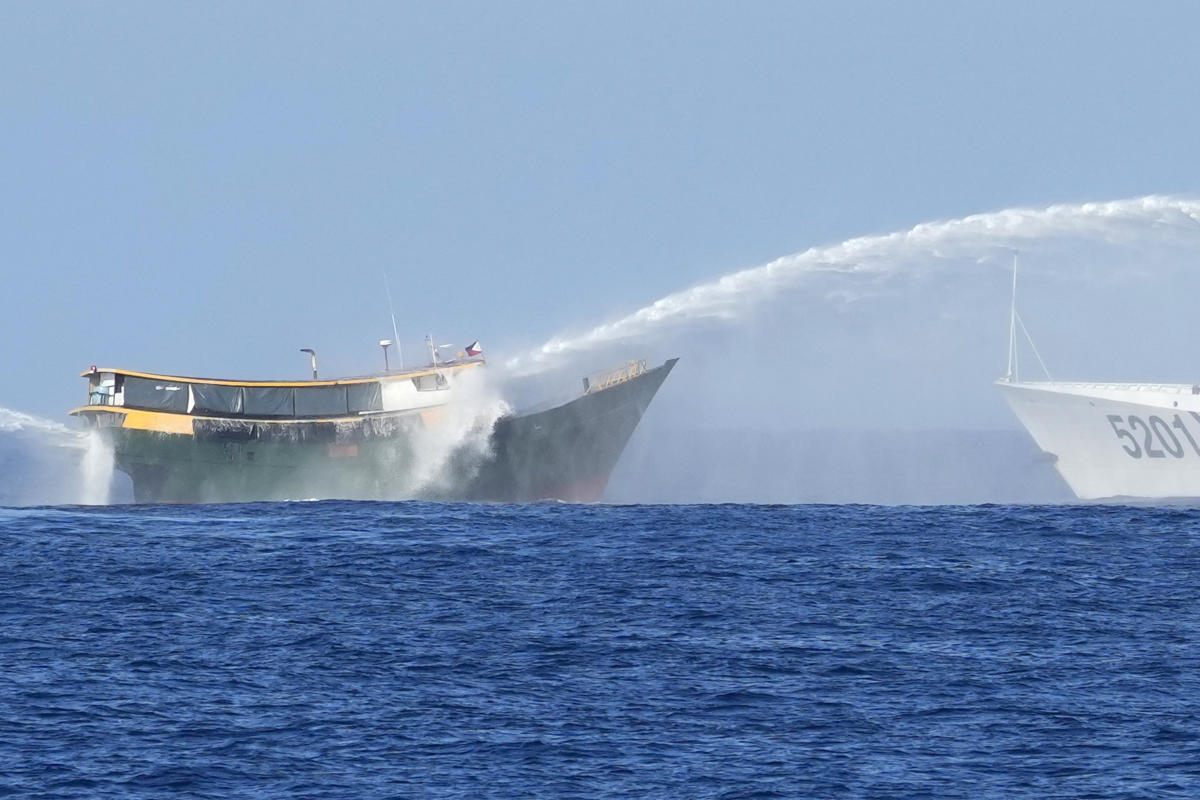China Reveals Unwritten Deal with Philippines Over South China Sea Islands
by [Your Name]
Background
TAIPEI, Taiwan — China recently made public an alleged unwritten agreement with the Philippines regarding access to the South China Sea islands. The announcement from the Chinese Embassy in Manila has the potential to escalate tensions in the disputed waterway, which sees significant global trade and is claimed almost entirely by China. The agreement, which Chinese officials claim was an unwritten “temporary special arrangement” reached in 2016 during a visit by former president Rodrigo Duterte to Beijing, allowed for small-scale fishing around the islands while restricting access by military, coast guard, and other official planes and ships to a 12 nautical mile limit of territorial waters.
Renewed Tensions
The Chinese Embassy in Manila accused the Philippines of reneging on the agreement, leading to ongoing disputes over the past year. The embassy claimed that the Philippines reneged on the agreement to “fulfill its own political agenda,” which forced China to take action. However, President Ferdinand Marcos Jr. and Duterte both deny any knowledge of the agreement and deny any compromise of Philippine sovereignty or sovereign rights.
Verbal Claims and Denials
During Duterte’s visit to Beijing in 2016, he hinted at such an agreement, claiming that he secured Philippine fishermen access to Scarborough Shoal. Collin Koh, an expert on naval affairs in the Indo-Pacific region, noted that Beijing’s recent statement relies solely on Duterte’s verbal claim. Marcos, the current president, stated that he was not aware of any secret agreement, and if such an agreement existed, he would rescind it.
Philippine Stance and Investigation
Although Duterte maintained an anti-American stance during his presidency, he acknowledged an agreement with Xi to maintain “the status quo” in the disputed waters to avoid war. House Speaker Ferdinand Martin Romualdez, a political ally of Marcos, has ordered an investigation into the alleged “gentleman’s agreement” with China. Philippine officials under Marcos deny any awareness of such an agreement and resist removing a grounded navy ship that serves as the country’s territorial outpost.
Regional and International Dynamics
Aside from the China-Philippines dispute, several other countries, including Vietnam, Malaysia, Taiwan, and Brunei, have overlapping claims in the resource-rich South China Sea. China has refused to recognize a 2016 international arbitration ruling that invalidated its claims based on historical grounds. Skirmishes between Beijing and Manila have intensified, with each accusing the other of violating commitments in the South China Sea.
U.S. Position and Defense Agreement
The United States, although not claiming any South China Sea territories, has conducted freedom of navigation operations in the area to challenge China’s claims. It has consistently warned that it is obligated to defend the Philippines, its oldest treaty ally in Asia, in the event of an armed attack. This includes any attack on Filipino forces, ships, or aircraft in the South China Sea.
Conclusion
The Chinese Embassy in Manila’s public release of the alleged unwritten agreement with the Philippines over the South China Sea islands has heightened tensions in the disputed region. While Philippine officials, including President Ferdinand Marcos Jr. and predecessor Rodrigo Duterte, deny any knowledge or existence of the agreement, a political investigation is underway. Meanwhile, neighboring countries continue to have overlapping claims, and the United States asserts its obligation to defend the Philippines. Escalating disputes in the South China Sea have global implications, impacting trade and regional stability.


